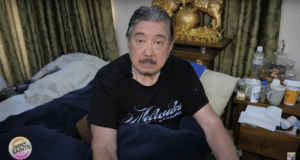This is in reaction to the full-page article titled “Rebalancing a ‘one-third’ society” by Rene E. Ofreneo (Talk of the Town, 5/24/15). The feature states that the major lament with PhilHealth is the “limited range of services” that we provide, and that “participating hospitals and clinics are also limited.”
We recognize the important role that the informal economy (IE) plays in the country’s economic activities, that is why we opened our doors to individually paying members in early 2000s so that they, too, can have financial risk protection against the high cost of hospitalization. Today, they comprise a significant portion of our overall membership and we give them as much importance as we do to members from other categories.
As full-fledged PhilHealth members, these “IEs” are also entitled to a wide range of medical care benefits, from inpatient to outpatient packages, to special packages addressing Millennium Development Goals, to Z benefits for catastrophic illnesses. Like their formally employed counterparts, they are only required to have contributions for three months within the immediate six months prior to the first day of confinement to be able to avail themselves of these benefits.
Through the Primary Care Benefit Package I (PCB I) which we introduced in 2012, we have provided access to these services to members under the Organized Groups, specifically those who are also “informals” from micro-finance institutions, cooperatives or similar informal groups. Now, we have expanded the range of primary care services to cover more diagnostic, promotive and preventive services that can be accessible through accredited rural health units, health centers and selected outpatient departments of participating government hospitals.
Now called Tsekap (Tamang Serbisyo para sa Kalusugan ng Pamilya), the package, which also includes drugs and medicines, is initially available to those who need these the most—the poor and near-poor members of society. Eventually, we will make these services available to members in other categories, including the “IEs.” The services should be available in rural health units (RHUs) and we are strongly encouraging our partner LGUs (local government units) to capacitate their RHUs for these services.
To date, we have a network of 1,139 accredited hospitals, 2,645 maternity care clinics, 2,438 PCB I providers, 1,654 TB-DOTS clinics, 687 primary care facilities, 226 animal bite treatment centers, 163 free-standing dialysis centers, 131 outpatient malaria package providers, and 124 ambulatory surgical clinics. In addition, we have over 30,000 accredited healthcare professionals who are actively participating in the delivery of quality medical care services to our members. We hope to have more partners joining us to enable us to better serve our members who now total about 87 percent of the entire Philippine population.
—ISRAEL FRANCIS A. PARGAS, MD, OIC-vice president, corporate affairs group, PhilHealth


